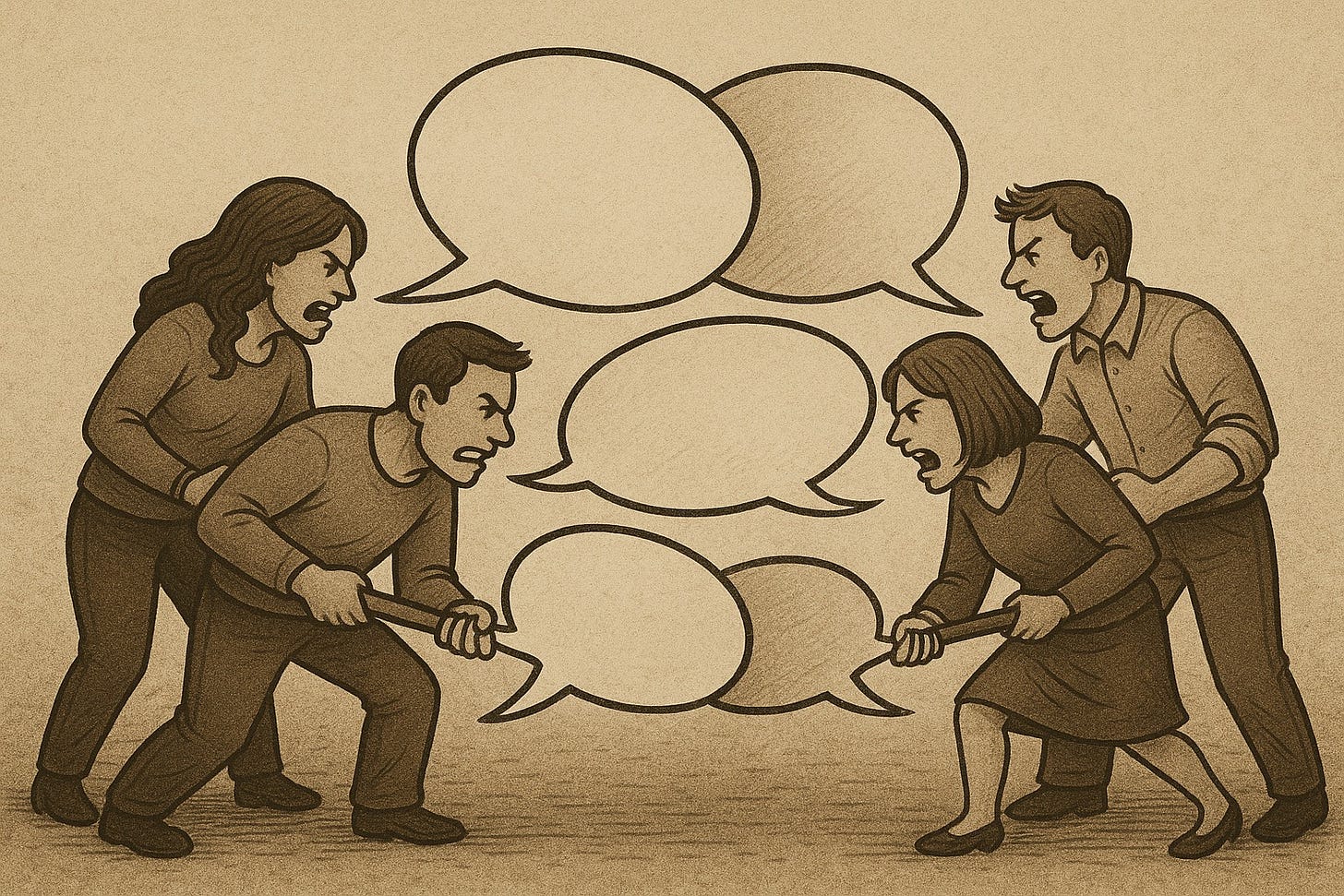Burying Our Weapons: Choosing Connection Over Conflict
Everywhere we look, people are at war. Sometimes the battlefields are literal, but more often they’re hidden in living rooms, workplaces, social media threads, and even quiet car rides home. Politics. Religion. Parenting styles. Petty arguments about movies or the dishes in the sink. The world feels disconnected and ready to clash at the slightest spark.
It makes me think of a story from the Book of Mormon—one that feels just as relevant now as it did when I first read it.
The Story of the Anti-Nephi-Lehis
The Lamanites, an ancient people, had lived in cycles of anger, bloodshed, and revenge for generations. But then something shifted. Missionaries came among them and taught a new way of life, centered in Christ. Their hearts softened. They were tired of hatred, tired of revenge.
So they made a covenant—a sacred promise—that they would never again kill another human being. To show their devotion, they did something radical: they buried their weapons of war deep in the ground. Not just set them aside. They didn’t hang them up on the wall “just in case.” Buried them—so they could never be used again.
This choice came at a cost. When enemies attacked, many of them were killed because they refused to fight back. Yet even in death, their example spoke louder than swords. Witnessing their courage and peace, many of their enemies laid down their own weapons and joined them.
The Analogy for Us
I think about this story every time I catch myself gripping one of my own “weapons.” Not a sword or a spear, but a sharp word, a cold silence, the need to always be right, the resentment I hold onto just a little too long.
And here’s where it gets tricky: sometimes I tell myself I’m “letting go,” when in reality I’ve just swept the issue under the rug. The weapon is still nearby, humming beneath the surface, ready to be picked up again.
But burying weapons is not the same as sweeping things under the rug.
- Rug-sweeping is avoidance. It hides the problem but doesn’t transform it.
- Burying weapons is surrender. It’s a conscious choice to stop fighting the same battle in the same way—even when it feels riskier than holding onto our defenses.
That difference is everything. It’s the difference between pretending and transforming. Between silence that festers and silence that heals.
Burying our weapons doesn’t mean ignoring pain. It means acknowledging the cycle and refusing to fuel it. It means saying: I’m willing to risk vulnerability if it brings me back to connection. I won’t keep reaching for the same sword, even if it feels safer than laying it down.
The Invitation
I won’t pretend this is easy. The Anti-Nephi-Lehies paid with their lives. For us, the cost might be pride, the illusion of control, or the comfort of being right. But the gift on the other side is deeper than defense: it’s reconnection, healing, and peace that ripple out far beyond us.
So I’ll ask you: what weapon are you still keeping close by?
Is it sarcasm? Withdrawal? The need to always win? The bitterness you’d rather not admit?
Maybe today is the day to bury it. Not sweep it where it lingers. Not keep it hanging on the wall for “just in case.” But bury it—out of reach, never to be used again.
Because only then can we step into something new. Only then can the cycle break. Only then can the world—our homes, our relationships, and maybe even our nations—find healing.



